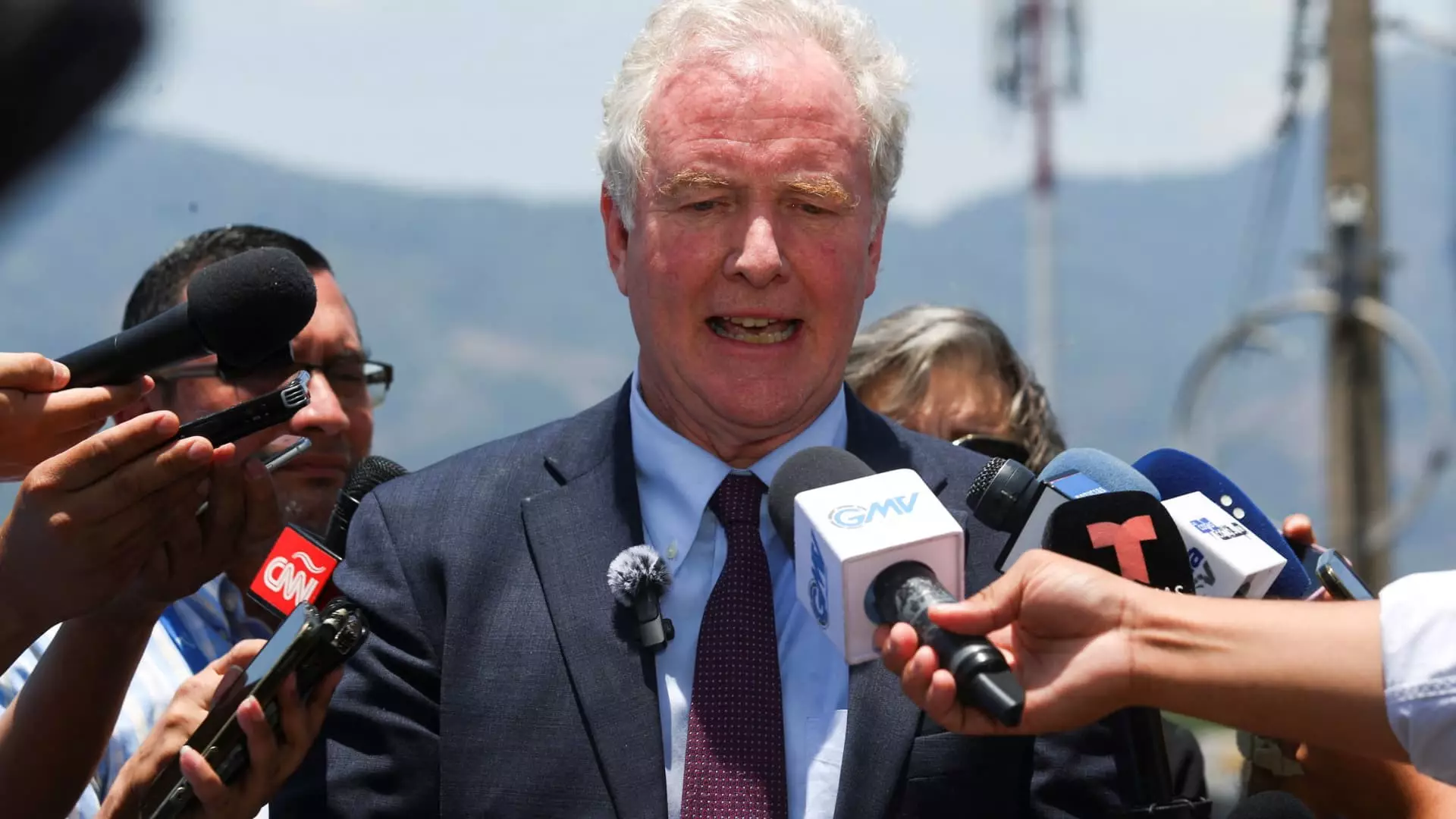In the politically charged atmosphere surrounding immigration in the United States, the case of Kilmar Abrego Garcia has escalated from a personal tragedy to a national embarrassment. As the Trump administration grappled with its controversial policies, Garcia—who was unjustly deported—found himself trapped in a desolate Salvadoran prison, his case emblematic of a flawed system. To witness a U.S. senator, Chris Van Hollen, traveling to Central America to advocate on his behalf may sound like an act of compassion, but it raises critical questions. Are these political gestures genuine, or are they merely a way to cover up an egregious failure of the government?
Behind the Curtain of Diplomatic Engagement
Senator Van Hollen’s visit to El Salvador was ostensibly aimed at securing Garcia’s release and advocating for his welfare, which should be applauded. However, the whole affair feels disingenuous given the underlying issues at play. The senator’s unsuccessful attempts to meet Garcia at the CECOT prison were met with heavy military presence, a clear indication that the government’s intentions are anything but transparent. Van Hollen’s graphic description of being stopped by soldiers merely three kilometers from the prison underscores the control exerted by the Salvadoran government, often complicit in violating human rights. If this is what “facilitating” looks like, then the word has lost all meaning.
Political Posturing vs. Genuine Advocacy
Van Hollen’s insistence that the Trump administration’s actions were a cover-up highlights the stark reality that political motives often overshadow genuine concern for the individual. The senator called for proof of Garcia’s health and safety, which reflects a larger systemic issue: a lack of accountability. Significantly, the fact that Maryland officials felt compelled to demand verification of Garcia’s condition illustrates the profound distrust between lawmakers and agencies tasked with upholding the law. When political leaders become mere messengers for families who are victims of government overreach, one has to seriously ponder the efficacy of their power and what that power can achieve for everyday citizens.
A Supreme Court Order in Vain
Perhaps one of the most astonishing aspects of this saga is the Supreme Court ruling mandating the Trump administration to facilitate Garcia’s return, only for that order to be treated like an afterthought. This kind of flagrant disregard for judicial authority speaks volumes about a government that has become increasingly unresponsive to the very laws it is supposed to enforce. What good is a court order if it can be ignored without consequence? This situation reveals a troubling facet of contemporary governance—laws can be manipulated or outright neglected based on political expediency. It’s a disturbing precedent that should alarm every citizen, regardless of political affiliation.
The Human Face of Bureaucratic Failures
At the heart of this political theater is a human being—a husband, a father—whose life hangs in the balance while bureaucratic machinery operates without empathy. Garcia entered the United States seeking hope and better opportunities, only to find himself trapped in a nightmare. This is not just a story threaded with political commentary; it is a deeply personal crisis affecting real families. By focusing solely on the political ramifications, we risk losing sight of the human dimension of this tragedy. The people behind these headlines deserve compassion, not mere diplomatic posturing.
There comes a point when political engagement must transcend mere rhetoric. If the current system continues to allow such violations to occur without the necessary checks and balances, it opens the door for more abuses. The struggle for Kilmar Abrego Garcia is one that should not only resonate deeply within the circles of political discourse but should also compel ordinary citizens to demand justice. The consequences of inaction are too severe to ignore as they ripple through communities, echoing the fundamental truth of our shared humanity. As advocates call for reforms and accountability, the result should be a restoration of faith in a government that serves its people—flaws and all.

